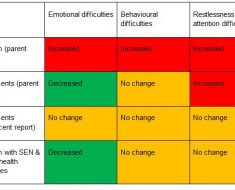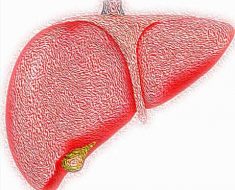Having more than two children can significantly damage a mother’s health… and having more than five could raise heart attack risk by 40%
- Having more than two children can significantly damage a mother’s health
- The more children a woman has, the greater the risk of heart attack and stroke
- Pregnancy and labour put strain on the heart, while children are stressful
Most parents will agree that children raise their stress levels. Now it appears that having more than two can significantly damage a mother’s health.
The more children a woman has, the greater the risk of heart attack, stroke and heart failure, according to a study led by Cambridge University.
Those with five or more children were 40 per cent more likely to have a serious heart attack in the next 30 years compared to women with one or two children.

Most parents will agree that children raise their stress levels. Now it appears that having more than two can significantly damage a mother’s health
Pregnancy and labour put strain on the heart, while children are stressful and stop mothers looking after themselves properly, the researchers suggest.
Cambridge’s Dr Clare Oliver-Williams, who led the research, said: ‘We know that pregnancy and childbirth put a tremendous strain on the heart, and raising children can be very stressful too.
‘We don’t want to add to the stress people have in their everyday lives but equip them with the knowledge to do something about it.’
Scientists from Cambridge and North Carolina studied data from more than 8,000 women from the United States, who were aged between 45 and 64.
Having five or more children was also associated with a 30 per cent increased risk of heart disease, the major cause of heart attacks. They were a quarter (25 per cent) more likely to have a stroke and almost a sixth (17 per cent) more likely to have heart failure than mothers of one or two.
The researchers found women who had between three and four children were more likely to have serious health implications, but the most significant increase was in those with five or more.
Women who have had miscarriages were found to have a 60 per cent greater risk of heart disease and were 45 per cent more likely to go on to have heart failure.
But this is likely to be the result of underlying health problems that increase the chances of pregnancy loss, the researchers said.
Unlike previous studies which suggested breastfeeding helped protect against cardiovascular disease, it found this did not have an impact on the heart health of mothers.

Those with five or more children were 40 per cent more likely to have a serious heart attack in the next 30 years compared to women with one or two children
In Britain, 3.5million women are living with cardiovascular disease – the same number as men. According to the British Heart Foundation, heart and circulatory disease causes more than a quarter of all deaths in the UK, around 160,000 each year.
It is hoped the findings will help to identify those more at risk to take preventative action.
Dr Oliver-Williams said: ‘The number of children a woman has had is an easy sign of whether a woman is at greater risk.
‘We all know it’s hard to take care of your health when you have children, but hopefully this research can help show how important it is and, perhaps, having children can provide some extra motivation.’
The research will be presented today at the British Cardiovascular Society conference in Manchester.
Professor Jeremy Pearson, associate medical director at the British Heart Foundation which funded the study, said: ‘While it’s perhaps not surprising that having more children can mean that mums have less time to look after their own health, this research brings home just how important it is for everyone to keep an eye on their heart health, particularly busy parents.
‘Research like this reminds us that – regardless of the stereotype of the overweight, middle-aged man having a heart attack – heart disease strikes men and women alike. As the major cause of heart attacks and strokes, heart disease cruelly tears families apart.’
Source: Read Full Article





